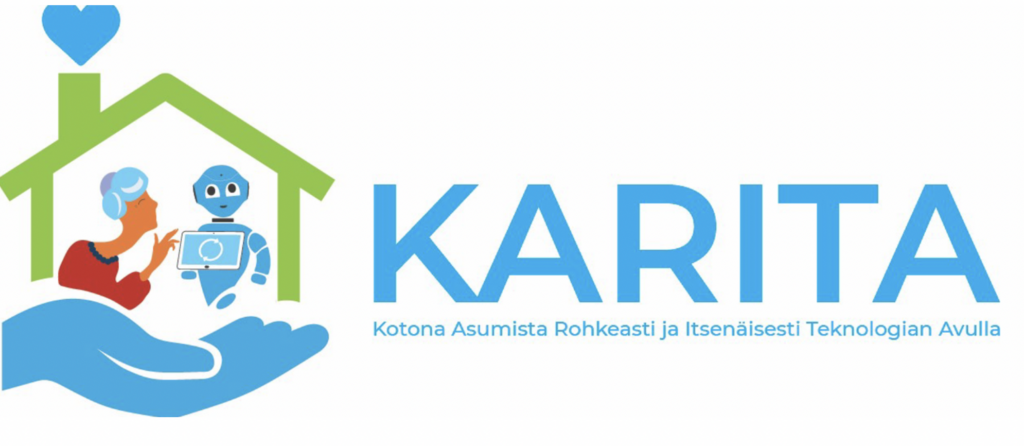
Bold and Independent Living at Home Through Technology (KARITA) Kati -ohjelma
1 January 2021 - 31 December 2022
Health and WelfareThe “Bold and Independent Living at Home Through Technology” (KARITA) project is part of the Ministry of Social Affairs and Health’s program “Home Living Technologies for the Elderly” (KATI). The KATI program is implemented through regional projects in the years 2021-2022.
Oulu University of Applied Sciences is one of the sub-implementers of the KARITA project. The KARITA project is managed by the South Karelia Social and Health Care District (Eksote). Other sub-implementers include the City of Oulu, LAB University of Applied Sciences, and the Northern Ostrobothnia Hospital District (FinCCHTA).
Information about the Project
Coordinated by the National Institute for Health and Welfare (THL), the KATI program aims to develop and implement technology that supports living at home. The KATI program is carried out through regional projects in the years 2021-2022. (Innokylä 2021.) Link: Innokylä website
Purpose and Objectives of the KARITA Project
The purpose of the KARITA project, managed by Eksote, is to explore new impactful technological solutions through experiments with digital services, artificial intelligence, and robotics, among other things. The main objective of the KARITA project is to reduce the need for social and healthcare services for the elderly by utilizing technology and shifting the demand for regular services. Through technology, solutions are sought to support living at home by involving the home care client, their family, and social and healthcare professionals. The information produced by the project can support the living at home of those citizens and their families who are not within the scope of regular services but have an increased risk of needing them. (Innokylä 2021.)
The objective of Oulu University of Applied Sciences in the project is to examine how client-centeredness and ethics are manifested in the development of services for the elderly to be delivered at home and the utilization of technology to support living at home. Oamk coordinates the ethical assessment of actions within the KARITA project and conducts a client-centered needs assessment, based on which technology can be targeted correctly and developed to meet the needs of the elderly. Additionally, the project produces interventions aimed at research and development as well as the improvement of skills and knowledge, which aim to support the actions of employees and supervisors, among others.